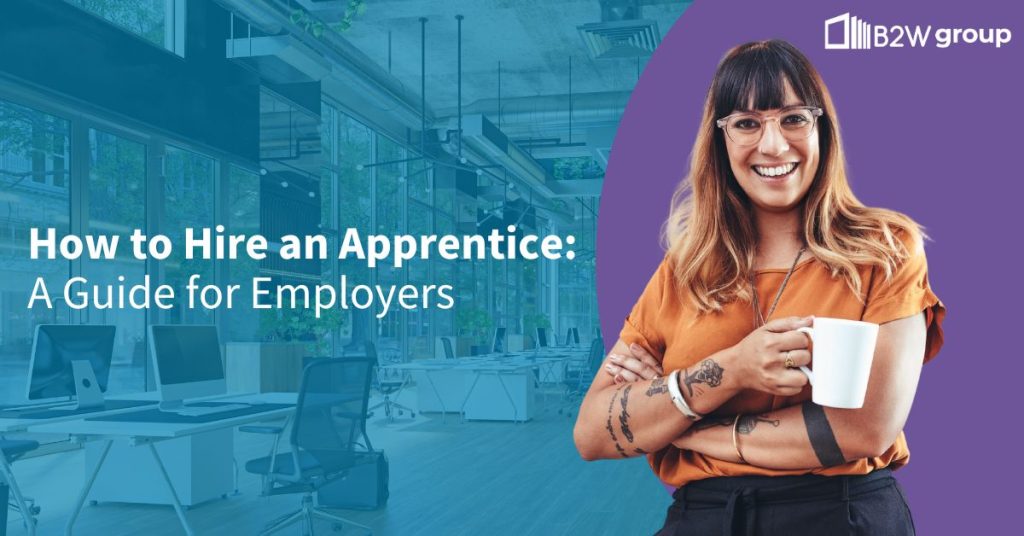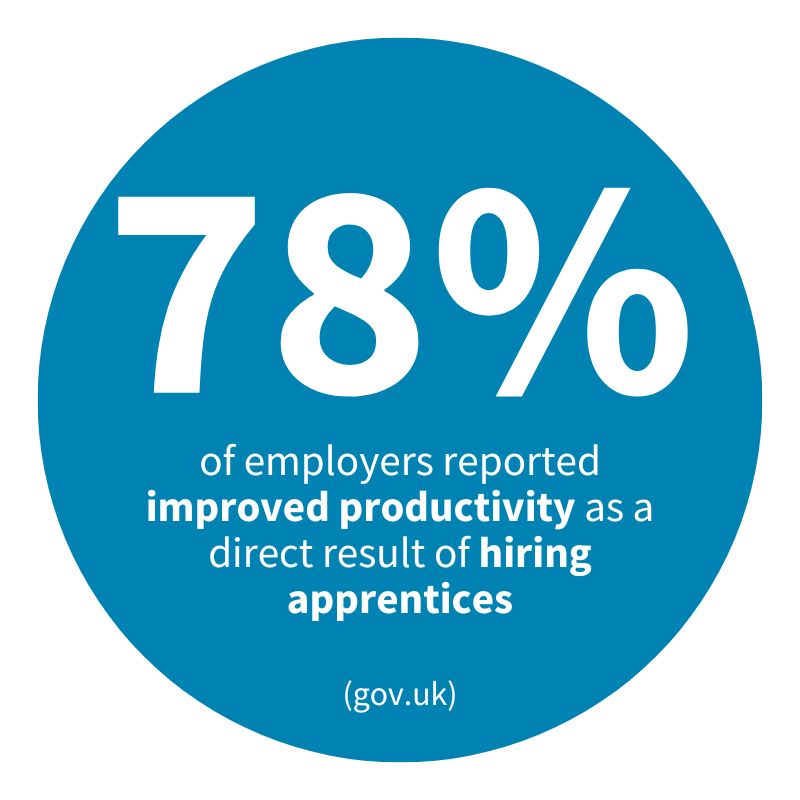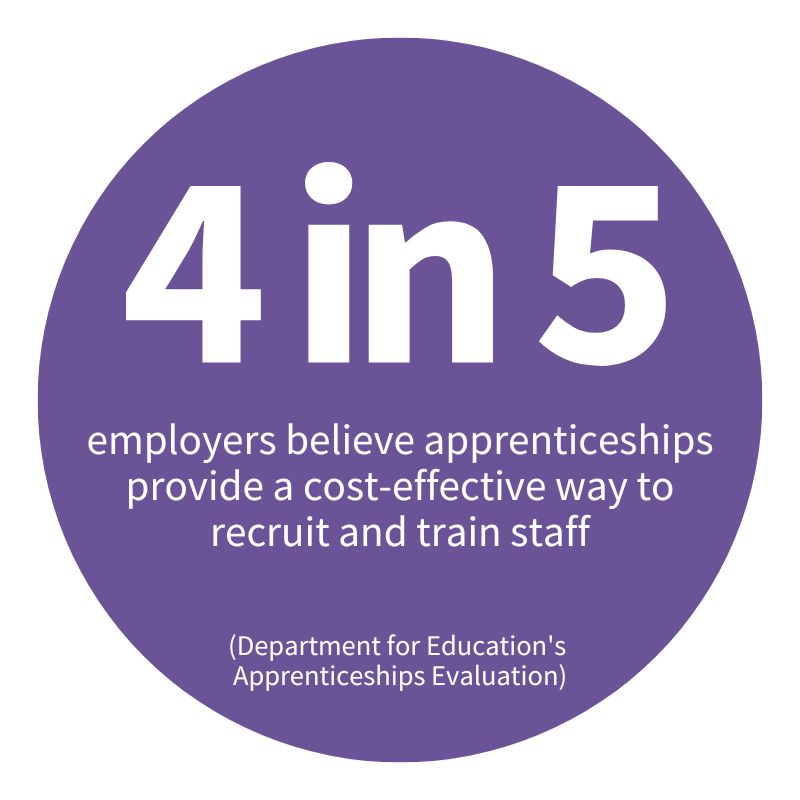
Hiring an apprentice is a strategic way to invest in the future of your business. By bringing on board someone eager to learn, you can tailor their training to your company’s specific needs, while benefiting from government support. Here’s a comprehensive guide to help you navigate the process.
An apprentice is an individual who works for your company while simultaneously studying towards a recognised qualification.
Apprenticeships can cover a wide range of industries and roles, from green energy and gas engineering, to HR and digital marketing.
The typical apprenticeship can last between one and four years, depending on the level and industry.
Before you start the hiring process, it’s important to assess your business needs.
Consider the skills gaps within your company and how an apprentice could help fill those.
You can then determine the job role you want to offer and how it aligns with an apprenticeship framework or standard.

Apprenticeships are structured around frameworks (older system) or standards (newer system).
These set out the skills, knowledge, and behaviours your apprentice needs to learn. You can find an appropriate standard by searching the government’s apprenticeship website, or by contacting our team – who will be happy to help provide more information and guidance.
An approved training provider will deliver the formal training and qualifications for your apprentice.
Providers can also help with recruitment, training plans, and accessing government funding.
At The B2W Group, we offer apprenticeships in HR, Digital, and IT and Green Energy Skills from Level 3 through to Level 7, all of which are provided by BePro, Just IT and ECTA training respectively.
In the UK, you are entitled to receive financial support to cover some of the costs of hiring an apprentice:
Additional incentives may be available, such as grants for hiring apprentices under 25, or those who have been in care.
Make sure you understand the funding available and how to access it before you begin hiring an apprentice.
We are more than happy to assist you with this, so reach out to our team for a conversation if you wish to understand more about the funding available.

Before the apprenticeship begins, you need to formalise the relationship with an Apprenticeship Agreement and a Commitment Statement:
Apprenticeship Agreement: This document outlines the apprenticeship’s duration, training, job role, and practical experience. It’s a legally binding document that ensures both you and your apprentice understands their responsibilities.
Commitment Statement: This is a tripartite agreement between you as the employer, your apprentice, and the training provider. It details the training schedule, how progress will be reviewed, and the support that will be provided.
You can advertise your apprenticeship through the government’s Find an Apprenticeship service, or work with your training provider, who can handle the recruitment on your behalf.
When recruiting, you should consider the following:
Once you have successfully hired your apprentice, you should be aware of your ongoing responsibilities, such as:
Once your apprentice starts, it’s crucial to offer regular feedback, guidance, and support. Assign a mentor within your company who can help the apprentice navigate their role, provide insights, and act as a point of contact for any issues that arise.
Regularly review your apprentice’s progress, both in their practical work and academic learning. Work closely with your training provider to ensure the apprentice is on track with their learning objectives. Providing constructive feedback is key to their development.
Upon completing their apprenticeship, you’ll need to decide on the next steps for your apprentice. If they’ve been a good fit, you could consider offering them a permanent role within your company. Alternatively, they may wish to continue their education or pursue further training opportunities.
Hiring an apprentice is a valuable investment in your company’s future. By following the steps outlined in this guide, you can ensure a smooth process that benefits both your business and the apprentice. Remember, the key to a successful apprenticeship lies in clear communication, ongoing support, and a commitment to the apprentice’s development.
At The B2W Group, we offer a range of apprenticeships across multiple industries, and can help your business recruit and retain apprentices for a wide range of roles in HR, Digital & IT and in Green Energy Skills.
Contact our team today to discover how we can help you and your business.

The B2W Group has a fresh approach to transforming businesses by up-skilling their current staff or bringing an apprentice into the business to add a dynamic and dedicated individual to the team. All of our courses are available through various streams of government funding so are a cost-effective way to provide high-quality training within the workplace.
Registered office in England and Wales, No:07559200
© 2020, The B2W Group, All Rights Reserved.